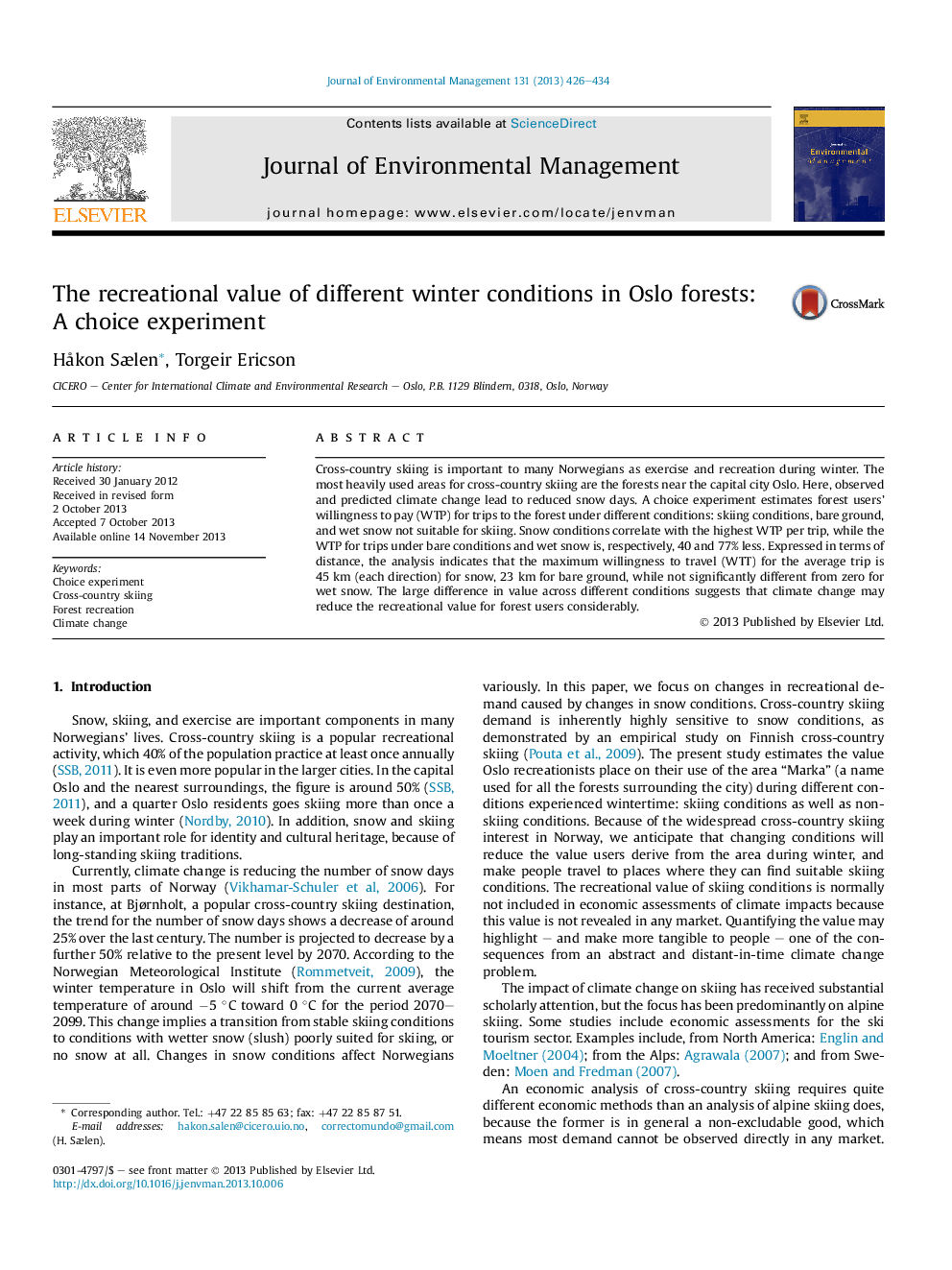| Article ID | Journal | Published Year | Pages | File Type |
|---|---|---|---|---|
| 1055970 | Journal of Environmental Management | 2013 | 9 Pages |
•Climate change is affecting the skiing conditions in Oslo forests.•Skiing conditions are being replaced by bare ground and wet snow conditions.•We use a choice experiment to investigate preferences for different conditions.•The WTP for trips on bare ground and wet snow are, respectively, 60% and 23% of the value for a skiing trip.•Hence, climate change may considerably reduce the recreational value of the area in winter.
Cross-country skiing is important to many Norwegians as exercise and recreation during winter. The most heavily used areas for cross-country skiing are the forests near the capital city Oslo. Here, observed and predicted climate change lead to reduced snow days. A choice experiment estimates forest users' willingness to pay (WTP) for trips to the forest under different conditions: skiing conditions, bare ground, and wet snow not suitable for skiing. Snow conditions correlate with the highest WTP per trip, while the WTP for trips under bare conditions and wet snow is, respectively, 40 and 77% less. Expressed in terms of distance, the analysis indicates that the maximum willingness to travel (WTT) for the average trip is 45 km (each direction) for snow, 23 km for bare ground, while not significantly different from zero for wet snow. The large difference in value across different conditions suggests that climate change may reduce the recreational value for forest users considerably.
